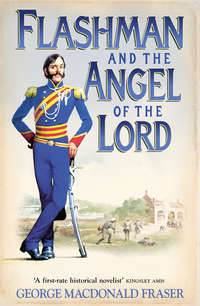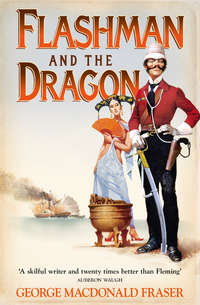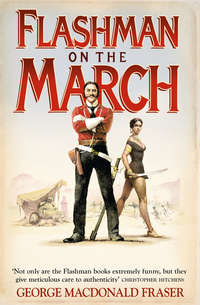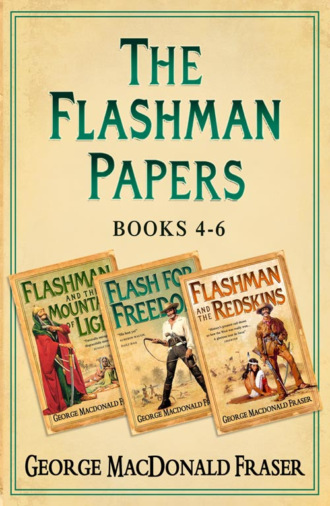
Полная версия
Flashman Papers 3-Book Collection 2: Flashman and the Mountain of Light, Flash For Freedom!, Flashman and the Redskins

THE FLASHMAN PAPERS BOOKS 4–6
FLASHMAN AND THE MOUNTAIN OF LIGHT FLASH FOR FREEDOM! FLASHMAN AND THE REDSKINS
GEORGE MACDONALD FRASER

Table of Contents
Cover
Title Page
Flashman and the Mountain of Light
Flash for Freedom!
Flashman and the Redskins
About the Author
Also by George MacDonald Fraser
Copyright
About the Publisher
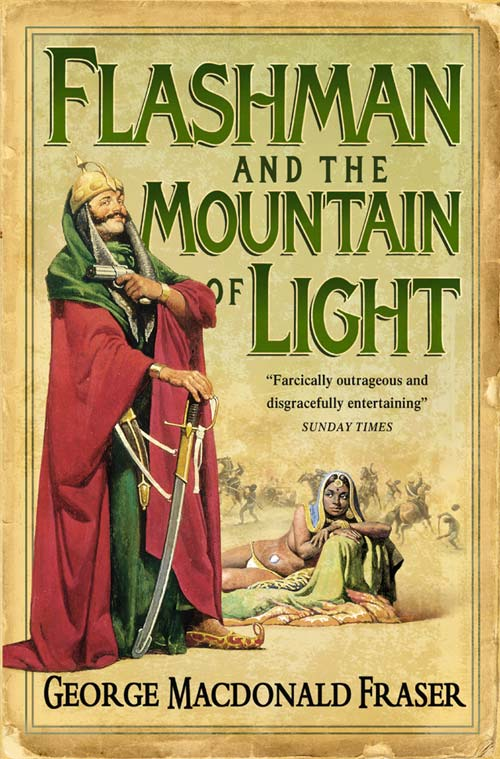
FLASHMAN AND THE MOUNTAIN OF LIGHT
From The Flashman Papers, 1845–46
Edited and Arranged by
GEORGE MACDONALD FRASER

Dedication
For Kath, as always, and with salaams to Shadman Khan and Sardul Singh, wherever they are.
Table of Contents
Cover
Title Page
Dedication
Explanatory Note
Map
Chapter 1
Chapter 2
Chapter 3
Chapter 4
Chapter 5
Chapter 6
Chapter 7
Chapter 8
Chapter 9
Chapter 10
Chapter 11
Chapter 12
Chapter 13
Chapter 14
Chapter 15
Chapter 16
Chapter 17
Chapter 18
Appendix I: The Sutlej Crisis
Appendix II: Jeendan and Mangla
Appendix III: The Koh-i-Noor
Glossary
Notes
Copyright
Explanatory Note
The life and conduct of Sir Harry Flashman, VC, were so irregular and eccentric that it is not surprising that he was also erratic in compiling his memoirs, that picturesque catalogue of misadventure, scandal, and military history which came to light, wrapped in oilskin packets, in a Midlands saleroom more than twenty years ago, and has since been published in a series of volumes, this being the ninth. Beginning, characteristically, with his expulsion from Rugby in 1839 for drunkenness (and thus identifying himself, to the astonishment of literary historians, with the cowardly bully of Tom Brown’s Schooldays), the old Victorian hero continued his chronicle at random, moving back and forth in time as the humour took him, until the end of his eighth packet found him, again the worse for drink, being shanghaied from a Singapore billiard-room after the China War of 1860. Along the way he had ranged from the First Afghan War of 1842 to the Sioux campaign of 1876 (with a brief excursion, as yet unpublished, to a brawl in Baker Street as far ahead as 1894, when he was in his seventy-second year); it goes without saying that many gaps in his story remain to be filled, but with the publication of the present volume, which reverts to his early manhood, the first half of his life is almost complete; only an intriguing gap in the early 1850s remains, and a few odd months here and there.
Thus far, it is not an improving tale, and this latest chapter is consistent in its depiction of an immoral and unscrupulous rascal whose only commendable quality (terms like “virtue” and “saving grace” are not to be applied to one who gloried in having neither) was his gift of accurate observation; it was this, and the new and often unexpected light which it enabled him to cast on great events and famous figures of his time, that excited the interest of historians, and led to comparison of his memoirs with the Boswell Papers. Be that as it may, it was a talent fully if nervously employed in the almost forgotten imperial campaign described in this volume – “the shortest, bloodiest … and strangest, I think, of my whole life”. Indeed it was strange, not least in its origins, and Flashman’s account is a remarkable case-history of how a war can come about, and the freaks and perfidies and intrigues of its making and waging. It is also the story of a fabulous jewel, and of an extraordinary quartet – an Indian queen, a slave-girl, and two mercenary adventurers – who would be dismissed as too outlandish for fiction (although Kipling seems to have made use of one of them) if their careers were not easily verifiable from contemporary sources.
This, as with previous packets of Flashman’s papers entrusted to me by their owner, Mr Paget Morrison, has been my chief concern – to satisfy myself that Flashman’s narrative tallies with historic fact, so far as it can be tested. Beyond that I have only corrected occasional lapses in spelling, and supplied the usual footnotes, appendices and glossary.
G.M.F.
Map
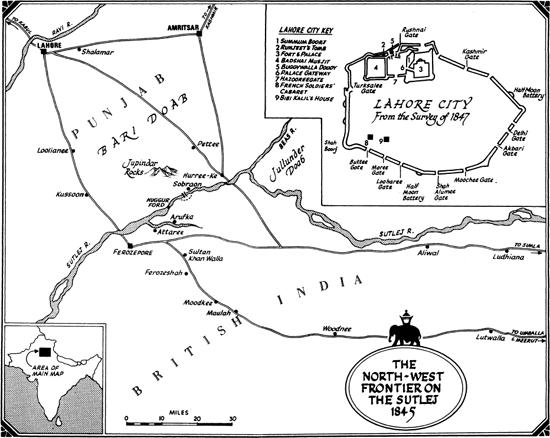
Chapter 1
“Now, my dear Sir Harry, I must tell you,” says her majesty, with that stubborn little duck of her head that always made Palmerston think she was going to butt him in the guts, “I am quite determined to learn Hindoostanee.”
This at the age of sixty-seven, mark you. I almost asked her what the devil for, at her time of life, but fortunately my idiot wife got in first, clapping her hands and exclaiming that it was a most splendid idea, since nothing so Improved the Mind and Broadened the Outlook as acquaintance with a Foreign Tongue, is that not so, my love? (Elspeth, I may tell you, speaks only English – well, Scotch, if you like – and enough nursery French to get her through Customs and bullyrag waiters, but anything the Queen said, however wild, always sent her into transports of approval.) I seconded loyally, of course, saying it was a capital notion, ma’am, bound to come in handy, but I must have looked doubtful, for our sovereign lady refilled my teacup pretty offhand, leaving out the brandy, and said severely that Dr Johnson had learned Dutch at the age of seventy.
“And I have an excellent ear,” says she. “Why, I still recollect precisely those Indian words you spoke, at my dearest one’s request, so many long years ago.” She sighed, and sipped, and then to my dismay trotted them out. “Hamare ghali ana, achha din. Lord Wellington said it was a Hindoo greeting, I recall.”
Well, it’s what the Bengali whores used to cry to attract customers, so she wasn’t far wrong. They’d been the only words I could think of, God help me, on that memorable day in ’42 when the Old Duke had taken me to the Palace after my Afghan heroics; I’d stood trembling and half-witted before royalty, and when Albert asked me to say something in Hindi, out they popped. Luckily, Wellington had had the wit not to translate. The Queen had been a pretty slip of a girl then, smiling timidly up as she pinned on the medal I didn’t deserve; now she was a stout little old body, faded and grey, fussing over the teacups at Windsor and punishing the meringues. Her smile was still there, though; aye, cavalry whiskers, even white ones, still fetched little Vicky.
“It is such a cheerful language,” says she. “I am sure it must have many jokes, does it not, Sir Harry?”
I could think of a few, but thought it best to give her the old harmless one that begins: “Doh admi joh nashe men the, rail ghari men safar kar raha ta –”
“But what does it mean, Sir Harry?”
“Well, ma’am, it means that two fellows were travelling by train, you see, and they were, I regret to say, intoxicated –”
“Why, Harry!” cries Elspeth, acting shocked, but the Queen just took another tot of whisky in her tea and bade me continue. So I told her that one chap said, where are we, and t’other chap replied, Wednesday, and the first chap said, Heavens, this is where I get out. Needless to say, it convulsed them – and while they recovered and passed the gingerbread, I asked myself for the twentieth time why we were here, just Elspeth and me and the Great White Mother, taking tea together.
You see, while I was used enough, in those later years, to being bidden to Balmoral each autumn to squire her about on drives, and fetch her shawl, and endure her prattle and those damned pipers of an evening, a summons to Windsor in the spring was something new, and when it included “dear Lady Flashman, our fair Rowena” – the Queen and she both pretended a passion for Scott – I couldn’t think what was up. Elspeth, when she’d recovered from her ecstasy at being “commanded to court”, as she put it, was sure I was to be offered a peerage in the Jubilee Honours (there’s no limit to the woman’s mad optimism); I damped her by observing that the Queen didn’t keep coronets in the closet to hand out to visitors; it was done official, and anyway even Salisbury wasn’t so far gone as to ennoble me; I wasn’t worth bribing. Elspeth said I was a horrid cynic, and if the Queen herself required our attendance it must be something grand, and whatever was she going to wear?
Well, the grandeur turned out to be Buffalo Bill’s Wild West Show1 – I concluded that I’d been dragged in because I’d been out yonder myself, and was considered an authority on all that was wild and woolly – and we sat in vile discomfort at Earl’s Court among a great gang of Court toadies, while Cody pranced on a white horse, waving his hat and sporting a suit of patent buckskins that would have laid ’em helpless with laughter along the Yellowstone. There was enough paint and feathers to outfit the whole Sioux Nation, the braves whooped and ki-yik-ked and brandished their hatchets, the roughriders curvetted, a stagecoach of terrified virgins was ambushed, the great man arrived in the nick of time blazing away until you couldn’t see for smoke, and the Queen said it was most curious and interesting, and what did the strange designs of the war paint signify, my dear Sir Harry?
God knows what I told her; the fact is, while everyone else was cheering the spectacle, I was reflecting that only eleven years earlier I’d been running like hell from the real thing at Little Bighorn, and losing my top hair into the bargain – a point which I mentioned to Cody later, after he’d been presented. He cried, yes, by thunder, that was one war-party he’d missed, and didn’t he envy me the trip, though? Lying old humbug. That’s by the way; I realised, when the Queen bore Elspeth and me back to Windsor, and bade us to tea à trois next day, that our presence at the show had been incidental, and the real reason for our invitation was something else altogether. A trifling matter, as it turned out, but it inspired this memoir, so there you are.
She wanted our opinion, she said, on a matter of the first importance – and if you think it odd that she should confide in the likes of us, the retired imperial roughneck of heroic record but dubious repute, and the Glasgow merchant’s daughter … well, you don’t know our late lamented Queen Empress. Oh, she was a stickler and a tartar, no error, the highest, mightiest monarch that ever was, and didn’t she know it, just – but if you were a friend, well, that was a different palaver. Elspeth and I were well out of Court, and barely half-way into Society, even, but we’d known her since long ago, you see – well, she’d always fancied me (what woman didn’t?), and Elspeth, aside from being such an artless, happy beauty that even her own sex couldn’t help liking her, had the priceless gift of being able to make the Queen laugh. They’d taken to each other as young women, and now, on the rare occasions they met tête-à-tête, they blethered like the grandmothers they were – why, on that very day (when I was safely out of earshot) she told Elspeth that there were some who wanted her to mark her Golden Jubilee by abdicating in favour of her ghastly son, Bertie the Bounder, “but I shall do no such thing, my dear! I intend to outlive him, if I can, for the man is not fit to reign, as none knows better than your own dear husband, who had the thankless task of instructing him.” True, I’d pimped for him occasional, but ’twas wasted effort; he’d have been just as great a cad and whoremaster without my tuition.
However, it was about the Jubilee she wanted our advice, “and yours especially, Sir Harry, for you alone have the necessary knowledge”. I couldn’t figure that; for one thing, she’d been getting advice and to spare for months on how best to celebrate her fiftieth year on the throne. The whole Empire was in a Jubilee frenzy, with loyal addresses and fêtes and junketings and school holidays and water-trough inaugurations and every sort of extravagance on the rates; the shops were packed with Jubilee mugs and plates and trumpery blazoned with Union Jacks and pictures of her majesty looking damned glum; there were Jubilee songs on the halls, and Jubilee marches for parades, and even Jubilee musical bustles that played “God Save the Queen” when the wearer sat down – I tried to get Elspeth to buy one, but she said it was disrespectful, and besides people might think it was her.
The Queen, of course, had her nose into everything, to make sure the celebrations were dignified and useful – only she could approve the illuminations for Cape Town, the chocolate boxes for Eskimo children, the plans for Jubilee parks and gardens and halls and bird-baths from Dublin to Dunedin, the special Jubilee robes (it’s God’s truth) for Buddhist monks in Burma, and the extra helpings of duff for lepers in Singapore: if the world didn’t remember 1887, and the imperial grandmother from whom all blessings flowed, it wouldn’t be her fault. And after years in purdah, she had taken to gallivanting on the grand scale, to Jubilee dinners and assemblies and soirées and dedications – dammit, she’d even visited Liverpool. But what had tickled her most, it seemed, was being photographed in full fig as Empress of India; it had given her quite an Indian fever, and she was determined that the Jubilee should have a fine flavour of curry – hence the resolve to learn Hindi. “But what else, Sir Harry, would best mark our signal regard for our Indian subjects, do you think?”
Baksheesh, booze, and bints was the answer to that, but I chewed on a muffin, looking grave, and said, why not engage some Indian attendants, ma’am, that’d go down well. It would also infuriate the lordly placemen and toad-eaters who surrounded her, if I knew anything. After some thought, she nodded and said that was a wise and fitting suggestion – in the event, it was anything but, for the Hindi-wallah she fixed on as her special pet turned out to be not the high-caste gent he pretended, but the son of a puggle-walloper in Agra jail; if that wasn’t enough, he spread her secret Indian papers all over the bazaars, and drove the Viceroy out of his half-wits. Aye, old Flashy’s got the touch.2
At the time, though, she was all for it – and then she got down to cases in earnest. “For now, Sir Harry, I have two questions for you. Most important questions, so please to attend.” She adjusted her spectacles and rummaged in a flat case at her elbow, breathing heavy and finally unearthing a yellowish scrap of paper.
“There, I have it. Colonel Mackeson’s letter …” She peered at it with gooseberry eyes. “… dated the ninth of February, 1852 … now where is … ah, yes! The Colonel writes, in part: ‘On this head, it will be best to consult those officers in the Company service who have seen it, and especially Lieutenant Flashman …’” She shot me a look, no doubt to make sure I recognised the name “‘… who is said to have been the first to see it, and can doubtless say precisely how it was then worn’.” She laid the letter down, nodding. “You see, I keep all letters most carefully arranged. One cannot tell when they may be essential.”
I made nothing of this. Where the deuce had I been in ’52, and what on earth was “it” on whose wearing I was apparently an authority? The Queen smiled at my mystification. “It may be somewhat changed,” says she, “but I am sure you will remember it.”
She took a small leather box from the case, set it down among the tea things, and with the air of a conjurer producing a rabbit, raised the lid. Elspeth gave a little gasp, I looked – and my heart gave a lurch.
It ain’t to be described, you must see it close to … that glittering pyramid of light, broad as a crown piece, alive with an icy fire that seems to shine from its very heart. It’s a matchless, evil thing, and shouldn’t be a diamond at all, but a ruby, red as the blood of the thousands who’ve died for it. But it wasn’t that, or its terrible beauty, that had shaken me … it was the memory, all unexpected. Aye, I’d seen it before.
“The Mountain of Light,” says the Queen complacently. “That is what the nabobs called it, did they not, Sir Harry?”
“Indeed, ma’am,” says I, a mite hoarse. “Koh-i-Noor.”
“A little smaller than you remember it, I fancy. It was recut under the directions of my dear Albert and the Duke of Wellington,” she explained to Elspeth, “but it is still the largest, most precious gem in all the world. Taken in our wars against the Sikh people, you know, more than forty years ago. But was Colonel Mackeson correct, Sir Harry? Did you see it then in its native setting, and could you describe it?”
By God, I could … but not to you, old girl, and certainly not to the wife of my bosom, twittering breathlessly as the Queen lifted the gleaming stone to the light in her stumpy fingers. “Native setting” was right: I could see it now as I saw it first, blazing in its bed of tawny naked flesh – in the delectable navel of that gorgeous trollop Maharani Jeendan, its dazzling rays shaming the thousands of lesser gems that sleeved her from thigh to ankle and from wrist to shoulder … that had been her entire costume, as she staggered drunkenly among the cushions, laughing wildly at the amorous pawings of her dancing-boys, draining her gold cup and flinging it aside, giggling as she undulated voluptuously towards me, slapping her bare hips to the tom-toms, while I, heroically foxed but full of good intentions, tried to crawl to her across a floor that seemed to be littered with Kashmiri houris and their partners in jollity … “Come and take it, my Englishman! Ai-ee, if old Runjeet could see it now, eh? Would he leap from his funeral pyre, think you?” Dropping to her knees, belly quivering, the great diamond flashing blindingly. “Will you not take it? Shall Lal have it, then? Or Jawaheer? Take it, gora sahib, my English bahadur!” The loose red mouth and drugged, kohl-stained eyes mocking me through a swirling haze of booze and perfume …
“Why, Harry, you look quite upset! Whatever is the matter?” It was Elspeth, all concern, and the Queen clucked sympathetically and said I was distrée, and she was to blame, “for I am sure, my dear, that the sudden sight of the stone has recalled to him those dreadful battles with the Sikhs, and the loss of, oh, so many of our gallant fellows. Am I not right?” She patted my hand kindly, and I wiped my fevered brow and confessed it had given me a start, and stirred painful recollections … old comrades, you know, stern encounters, trying times, bad business all round. But yes, I remembered the diamond; among the Crown Jewels at the Court of Lahore, it had been …
“Much prized, and worn with pride and reverence, I am sure.”
“Oh, absolutely, ma’am! Passed about, too, from time to time.”
The Queen looked shocked. “Not from hand to hand?”
From navel to navel, in fact, the game being to pass it round, male to female, without using your hands, and anyone caught waxing his belly-button was disqualified and reported to Tattersalls … I hastened to assure her that only the royal family and their, ah, closest intimates had ever touched it, and she said she was glad to hear it.
“You shall write me an exact description of how it was set and displayed,” says she. “Of course, I have worn it myself in various settings, for while it is said to be unlucky, I am not superstitious, and besides, they say it brings ill fortune only to men. And while it was presented by Lord Dalhousie to me personally, I regard it as belonging to all the women of the Empire.” Aye, thinks I absently, your majesty wears it on Monday and the scrubwoman has it on Tuesday.
“That brings me to my second question, and you, Sir Harry, knowing India so well, must advise me. Would it be proper, do you think, to have it set in the State Crown, for the great Jubilee service in the Abbey? Would it please our Indian subjects? Might it give the least offence to anyone – the princes, for example? Consider that, if you please, and give me your opinion presently.” She regarded me as though I were the Delphic oracle, and I had to clear my mind of memories to pay heed to what she was saying.
So that, after all the preamble, was her question of “first importance” – of all the nonsense! As though one nigger in a million would recognise the stone, or knew it existed, even. And those who did would be fat crawling rajas ready to fawn and applaud if she proposed painting the Taj Mahal red white and blue with her damned diamond on top. Still, she was showing more delicacy of feeling that I’d have given her credit for; well, I could set her mind at rest … if I wanted to. On reflection, I wasn’t sure about that. It was true, as she’d said, that Koh-i-Noor had been bad medicine only for men, from Aladdin to Shah Jehan, Nadir, old Runjeet, and that poor pimp Jawaheer – I could hear his death-screams yet, and shudder. But it hadn’t done Jeendan much good, either, and she was as female as they come … “Take it, Englishman” – gad, talk about your Jubilee parties … No, I wouldn’t want it to be unlucky for our Vicky.
Don’t misunderstand; I ain’t superstitious either. But I’ve learned to be leery of the savage gods, and I’ll admit that the sight of that infernal gewgaw winking among the teacups had taken me flat aback … forty years and more … I could hear the tramp of the Khalsa again, rank on bearded rank pouring out through the Moochee Gate: “Wah Guru-ji! To Delhi! To London!” … the thunder of guns and the hiss of rockets as the Dragoons came slashing through the smoke … old Paddy Gough in his white “fighting coat”, twisting his moustaches – “Oi nivver wuz bate, an’ Oi nivver will be bate!” … a lean Pathan face under a tartan turban – “You know what they call this beauty? The Man Who Would Be King!” … an Arabian Nights princess flaunting herself before her army like a nautch-dancer, mocking them … and defying them, half-naked and raging, sword in hand … coals glowing hideously beneath a gridiron … lovers hand in hand in an enchanted garden under a Punjab moon … a great river choked with bodies from bank to bank … a little boy in cloth of gold, the great diamond held aloft, blood running through his tiny fingers … “Koh-i-Noor! Koh-i-Noor! …”
The Queen and Elspeth were deep in talk over a great book of photographs of crowns and diadems and circlets, “for I know my weakness about jewellery, you see, and how it can lead me astray, but your taste, dear Rowena, is quite faultless … Now, if it were set so, among the fleurs-de-lys …”



